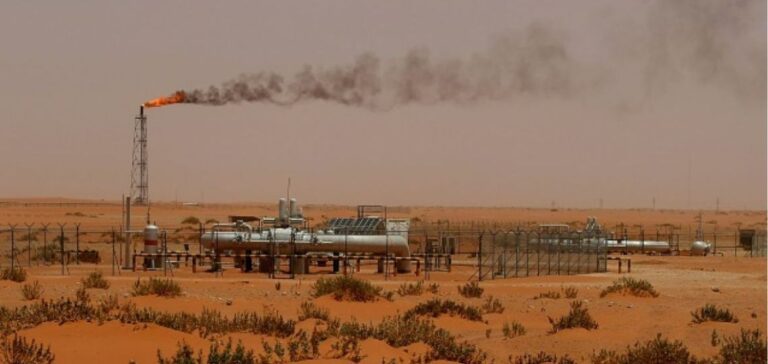Saudi Arabia, the heavyweight of the Organization of the Petroleum Exporting Countries (OPEC), has announced a sharp increase in its production, a move that could lead to a fall in crude oil prices on international markets.
This decision comes against a backdrop of heightened volatility, with players in the energy sector anticipating major repercussions.
A High-Risk Strategic Maneuver
Riyadh has opted to increase its oil supply, seeking to reinforce its dominance in a rapidly changing market.
This strategy aims to maintain its supremacy in the face of competitors, notably American shale oil producers, whose profitability depends on higher prices.
By flooding the market, Saudi Arabia is trying to force other producers to follow suit or suffer severe economic losses.
However, this policy is not without consequences for the kingdom itself.
The potential fall in oil prices could erode the revenues of exporting countries, whose economies are closely linked to oil revenues.
The risk of tensions within OPEC is growing, with some members less able to withstand such a drop in their profit margins.
This situation is testing the cartel’s cohesion and the ability of other producers to align their strategies.
Economic and financial implications
Financial markets reacted quickly to this announcement.
A prolonged fall in oil prices could temporarily benefit importing economies by reducing energy costs, but the repercussions for companies in the energy sector are more worrying.
Exploration and production companies, particularly those operating in areas where extraction costs are high, could see their profits seriously impacted.
Investors, anxious to preserve the value of their portfolios, could turn away from the oil sector, leading to increased volatility on stock markets.
This situation could also influence investment decisions in renewable energies, a sector that could benefit indirectly from oil price instability, even if the cost of entry remains a limiting factor.
Global Impact on the Energy Market
Saudi Arabia’s production increase comes at a time when energy markets are already facing significant challenges, notably the energy transition and the decarbonization of economies.
Pressure on oil prices could slow these efforts by making fossil fuels more financially attractive in the short term.
However, this trend could be reversed if market volatility prompts policy-makers and companies to accelerate investment in alternative energies.
How this situation evolves will largely depend on the responses of other market players, whether OPEC members or independent producers.
The rebalancing of forces could redefine the rules of the game on the world oil market, with lasting consequences for the entire energy sector.






















